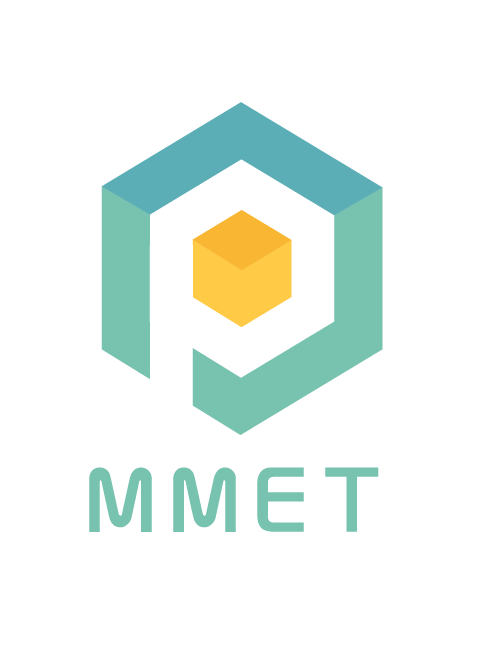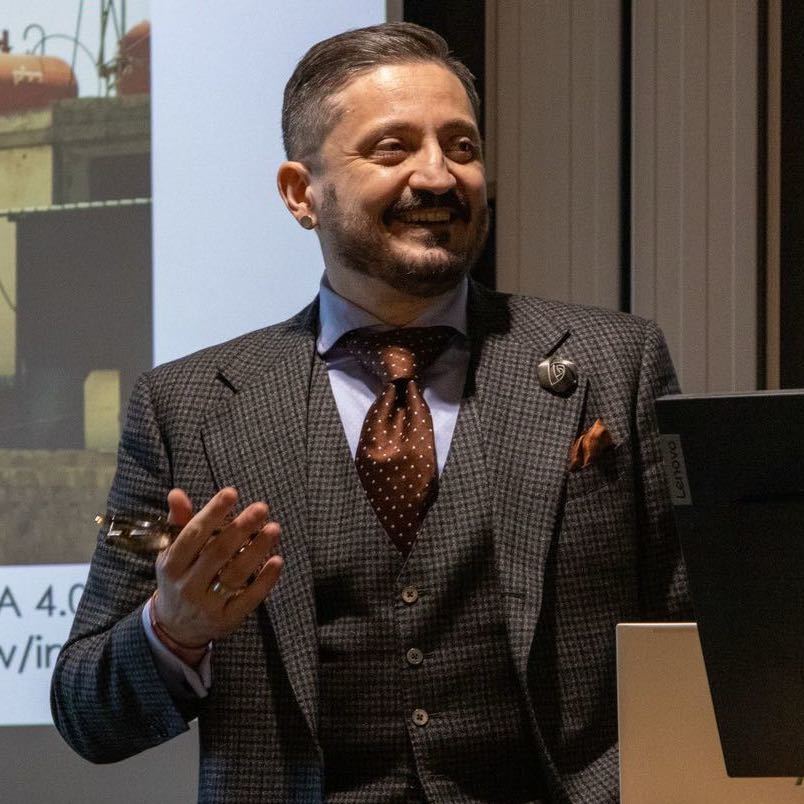
2025 10th International Conference on Modern Management, Education and Social Sciences(MMET 2025)
Speakers
| Prof. Adrian David CheokNanjing University of Information Science and Technology, ChinaExperience: Adrian David Cheok AM FIET FIEAust FRSA is Full Professor at Nanjing University of Information Science and Technology, Director of the Imagineering Institute, Malaysia, Visiting Professor at Raffles University, Malaysia, Visiting Professor at University of Novi Sad-Serbia, on Technical faculty “Mihailo Pupin”, Serbia, Faculty of Ducere Business School, and CEO of Nikola Tesla Technologies Corporation. In 2024, Professor Adrian David Cheok was honored with induction as a Full Member into Sigma Xi USA, The Scientific Research Honor Society, a recognition that not only signifies his dedication to scientific excellence but also aligns his contributions with those of groundbreaking researchers. Sigma Xi is a beacon of distinction within the global scientific community, boasting over 200 Nobel Laureates among its members, including luminaries such as Albert Einstein. This prestigious society is renowned for its commitment to the advancement of science and engineering and includes among its distinguished members other eminent personalities like Linus Pauling and Guglielmo Marconi, whose pioneering work has indelibly shaped the landscape of modern science and innovation. Professor Cheok’s association with Sigma Xi marks a pinnacle in his career, affirming his commitment to the ethos of rigorous and impactful scientific inquiry. Speech Title: The Last Flesh-and-Blood Professor? Confronting the Rise of Robot Pedagogues in the Twilight of Human Academia Abstract: This is not merely a lecture. It is a warning, a mirror, and a provocation. The ancient figure of the teacher—once robed in authority, wisdom, and flesh—now faces its most uncanny successor: the robot professor. In an era where neural architectures whisper knowledge more fluently than scholars, and androids are programmed with Socratic dialogue protocols, the sacred space of education is being colonized—not by corporations or ideologies, but by code. This keynote traverses the fault lines of a revolution that many still deny is underway. We explore the ontological redefinition of “professor” when AI lecturers can give flawless presentations, assess student work at scale, adapt to neurodivergent learners with unerring patience, and even simulate the warmth of mentorship—better, perhaps, than many human educators. But beyond function lies the abyss of meaning: Can a robot profess truth, or only process it? Is academic freedom possible for machines constrained by corporate code? What becomes of Bildung—the formation of the soul—when entrusted to an entity without one? Through a series of unfolding vignettes—from algorithmic tutors in Shanghai to fully synthetic faculty in European virtual universities—this address interrogates the metaphysics, politics, and poetic tragedy of a future where the last flesh-and-blood professor may become a relic of sentimental nostalgia. Let us not ask if robot teachers can teach. Let us ask instead: when they teach better than us—what, then, is left for us to be? |
Prof. Yongjun FengShaanxi Normal University, ChinaResearch Area: Educational history and culture, educational policy and evaluation, educational development strategy planning (university ranking), educational research methods, educational big data, internationalization of higher education Experience: Feng Yongjun, a doctoral supervisor, graduated from the Department of Education History at Xiamen University in June 2012, obtaining a Doctor of Education degree. He is a postdoctoral fellow at Beijing Normal University, a visiting professor and master's supervisor at Tianjin University, a special researcher at the Provincial Government Research Office of Yunnan Province, a researcher at the Key Laboratory of Ethnic Education Informatization of the Ministry of Education, a doctoral supervisor at Stanford International University in Thailand, the project leader of the China Higher Education Tracking Survey (CHEPS), and a recipient of the Special Talent Allowance from the Hebei Provincial Party Committee and Provincial Government. He previously served as the Executive Director and Chief Expert of the University Evaluation Research Team of Airensheng Research Institute, and is currently the President of Anbang China Evaluation Academy. He is the co-founder of "China University/Subject/Professional Ranking (Ranking)" and a consulting expert for QS, THEs, ARWU, etc. He has given lectures or provided medium- and long-term strategic planning consultation to over a hundred "Double First-Class" construction universities and other institutions. He has led 4 national projects and 3 provincial and ministerial projects, participated in 5 national projects, published over 20 books, and received 5 provincial and ministerial awards. Speech Title: Generative Artificial Intelligence Promotes High Quality Development of Higher Education: Global Experience and Chinese Practice Abstract: The trend of generative artificial intelligence is sweeping the world, ushering in the era of artificial intelligence in the human education system. Higher education is the leading force in building an educational powerhouse, and the empowerment of generative artificial intelligence for high-quality development of higher education has become a global fact. Generative artificial intelligence is a double-edged sword, and China's practice has shown that it has fully penetrated the field of higher education, bringing opportunities and challenges to teaching, learning and practice in universities. Analyzing the global experience of empowering high-quality development of higher education with generative artificial intelligence centered on China can provide useful references for Chinese universities to make good use of generative artificial intelligence; Using China as a method to explain the Chinese practice of empowering high-quality development of higher education with generative artificial intelligence can provide "Chinese wisdom" for global universities to make good use of generative artificial intelligence. |
| Prof. Andrea L . BaldiniChangjiang Chair Professor School of Arts | Peking University, China Experience: As the Changjiang Scholar Distinguished Professor at Peking University, I specialize in interdisciplinary research that spans aesthetics, cultural studies, intellectual property law, and visual culture. My focus is on how creativity can infuse political and social value into everyday practices, particularly through street art, graffiti, and public art. I am the founding Editor-in-Chief of the East Asian Journal of Philosophy (EAJP) and hold two doctorates—one in Philosophy from Temple University and another in Text Sciences from the University of Siena. I have authored three monographs, including A Philosophy Guide to Street Art and the Law (Brill), and my work is widely published in leading journals such as Philosophy Compass, Contemporary Aesthetics, Estetika, The Journal of Aesthetics and Art Criticism, and The Journal of Visual Culture. In addition to my own publications, I serve as a guest editor, scientific committee member, and sit on several editorial boards, including the Bloomsbury History of Modern Aesthetics series. Over the years, I have been recognized with multiple accolades, including the Top Paper in Urban Communication award from the National Communication Association (NCA) and the Nordev Prize from Temple University. My career has taken me to various prestigious institutions, including roles as a Fulbright Fellow at Temple University, International Exchange Postdoctoral Fellow at the Institute for Advanced Studies of Nanjing University, and Visiting Scholar at both Padua University and CIEBA – School of Fine Arts at the University of Lisbon. Title:Dirty Aesthetic Education: Graffiti, Critical Consciousness, and Transformative Action in the Neoliberal City Abstract: This keynote explores the provocative idea that graffiti writing, often dismissed as mere vandalism, can serve as a powerful form of dirty aesthetic education. Drawing on field research and philosophical analysis, I argue that mastering graffiti is not only an artistic endeavor but also a political act that challenges the monopolization of public space by corporate and political elites. Through the lens of Jacques Rancière’s concept of the “distribution of the sensible,” I show how graffiti cultivates critical consciousness, fosters unconventional skills, and enables transformative action – even when it involves legal transgression. Far from being an antithesis to moral or civic education, graffiti’s raw, rebellious pedagogy teaches its practitioners to reimagine visibility, resist exclusionary urban norms, and claim a voice in the public sphere. By examining graffiti’s aesthetic, political, and educational dimensions, this talk invites a reconsideration of how marginal or counterhegemonic creative practices can expand our understanding of education, inclusion, and civic engagement in contemporary cities. |

